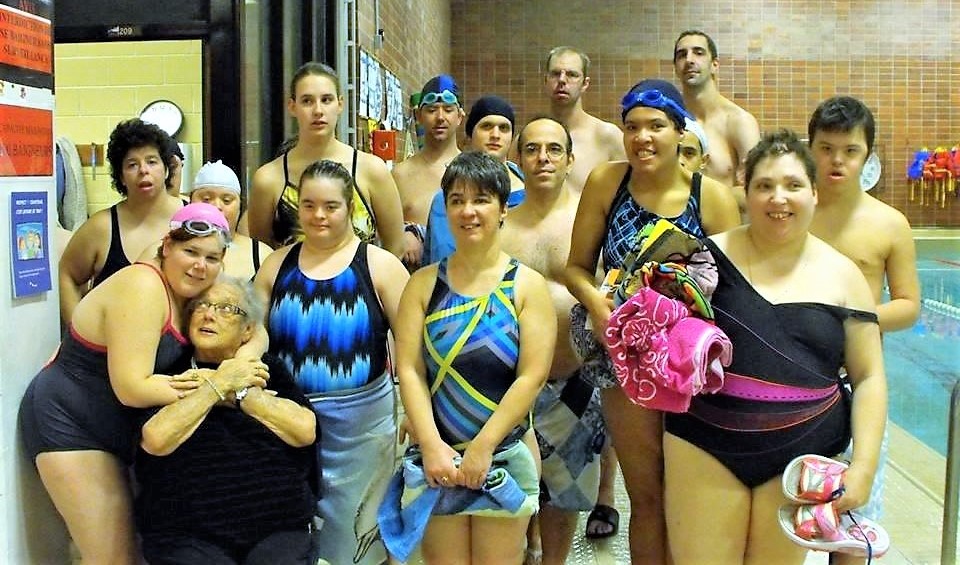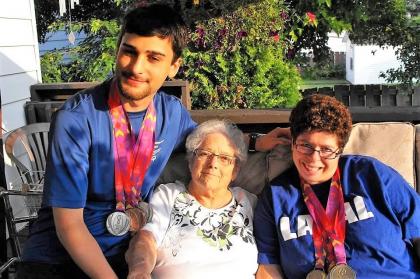No one could say no to Montreal’s Noëlla Douglas.
Although the small, 4’9 mother of five could make anyone feel like family with her welcoming smile, she was incredibly determined and “fought tooth and nail” for what she believed in – which was Special Olympics and its athletes.
“She was the pioneer of the movement in Quebec,” said Daniel Granger, a long-time Special Olympics Quebec board member who has known and appreciated Douglas for many years before she died in April 2017. “She was a big advocate for social inclusion even before Special Olympics started – and she was really involved until her death.”
In the late 1960s, Douglas worked at a warehouse that employed individuals with intellectual disabilities. She noticed they didn’t have much to do in their free time, so she organized a floor hockey team. She recruited volunteers, more players and eventually had a small league in Montreal.
She heard about Toronto’s Harry “Red” Foster, another Movement Maker, who incorporated Special Olympics in Canada. She met with Foster, sent a team to compete in Ontario and founded Special Olympics Quebec in 1981.
According to Granger, she was never afraid to ask for what her athletes needed – from telling former Montreal Canadiens’ player Bob Gainey his players had to stop fighting on the ice because her athletes mimicked their actions, to travelling to Ottawa and sitting in a Deputy Minister’s office until they agreed to see her and discuss funding.
“When she was going after something, she was really resilient,” said Granger. “She never took ‘no’ for an answer.”
Special Olympics Quebec swim coach, Peggy Barnes, met Douglas when she first became a volunteer 37 years ago. Douglas quickly became her mentor.
“She taught me an awful lot,” said Barnes. “She was so good with the athletes and was always bending over backwards for them.”
“She worked in workshops with them and she would hold dances for them, she would do fundraisers for them. She always wanted more – wanted them to be recognized a lot more.”
Douglas’ advocacy went beyond Special Olympics as well. She founded the theatre group POURQUOI PAS NOUS that presented plays featuring actors with intellectual disabilities. The group entered the European Festival of Disabled Artists in 1992 and the National Film Board documented their adventure, which lead to the 1993 film Les fiancés de la Tour Eiffel. It won a prize at an International Film Festival.
Douglas has been recognized across Quebec, Canada and Special Olympics worldwide for her advocacy and dedication to individuals with intellectual disabilities.
She received the Special Olympics Volunteer of the Year Award from Special Olympics International founder Eunice Kennedy-Shriver, as well as Special Olympics Canada’s Harry “Red” Foster Award, given to a select number of people who’ve contributed significantly to the development, awareness and success of the Special Olympics movement in Canada.
The most prestigious Special Olympics Quebec Award is also named after her.
Douglas continued to hand out the Noëlla Douglas Award and attend Special Olympics Quebec events until her death in 2017.
You can help continue her inspiring legacy by making a donation to Special Olympics Canada today.


